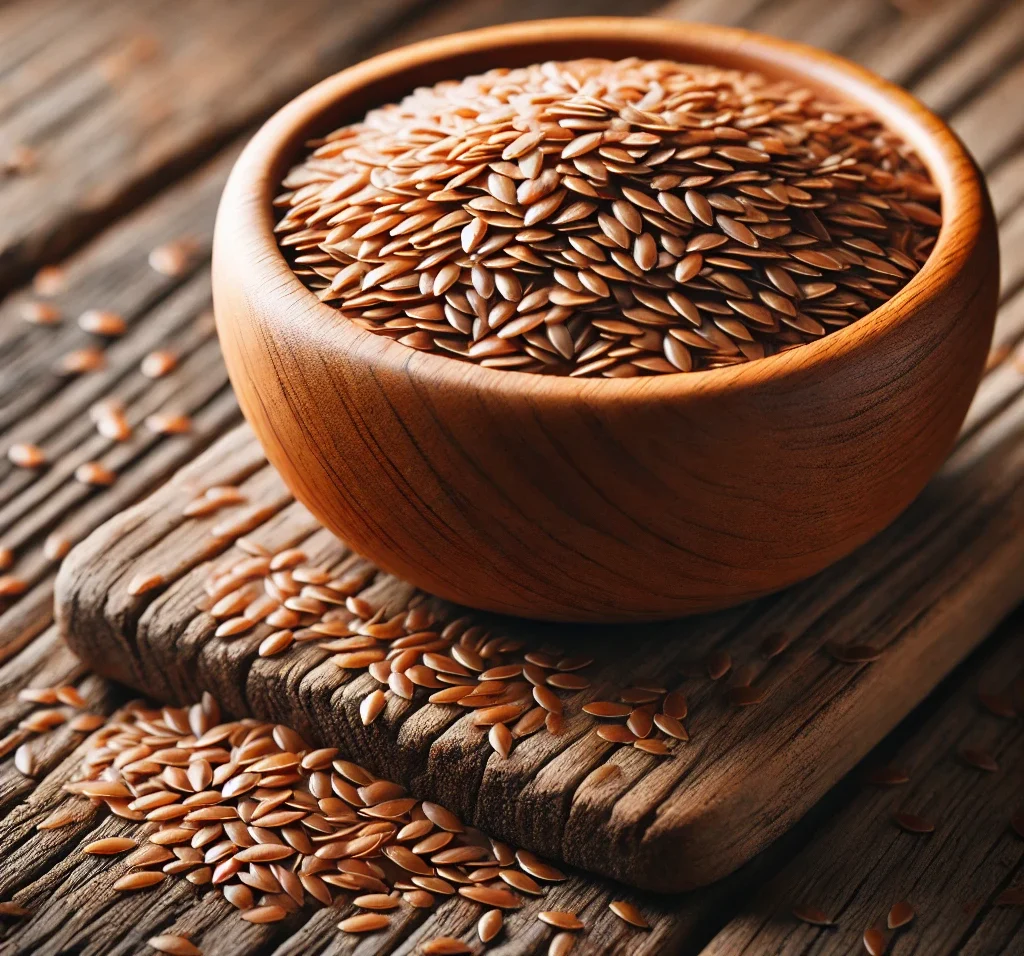Flax seeds, though small in size, pack a powerful nutritional punch that can benefit your overall health. They have been used for thousands of years for their nutritional and medicinal properties, providing a wide range of benefits from improving heart health to enhancing digestion. Flax seeds are rich in omega-3 fatty acids, fiber, protein, and a variety of vitamins and minerals, making them a fantastic addition to any diet.
Nutritional Benefits of Flax Seeds
Rich in Nutrients: Flax seeds are a powerhouse of essential nutrients, offering a wide array of health benefits. They are an excellent source of plant-based protein, healthy fats, especially omega-3 fatty acids (ALA), and dietary fiber. Flax seeds are also rich in vitamins such as vitamin B1 (thiamine) and several minerals, including magnesium, phosphorus, and manganese.
Packed with Antioxidants: Flax seeds contain lignans, powerful antioxidants that may reduce the risk of certain cancers, support hormonal balance, and protect cells from oxidative damage.
Rich in Omega-3 Fatty Acids: Flax seeds are one of the best plant-based sources of alpha-linolenic acid (ALA), a type of omega-3 fatty acid that is important for brain function, heart health and p, may help reduce inflammation.
Source of Plant-based Protein: Flax seeds provide a good amount of plant-based protein, making them a valuable addition to vegetarian and vegan diets. Protein is essential for muscle repair, immune function, and overall bodily functions.
High in Dietary Fiber: Flax seeds are an excellent source of both soluble and insoluble fiber, which promote digestive health, support regular bowel movements, and help control blood sugar levels. The fiber content also promotes feelings of fullness, aiding in weight management.
Improves Digestive Health: The combination of soluble and insoluble fiber in flax seeds promotes a healthy digestive system by regulating bowel movements, preventing constipation, and supporting a healthy gut microbiome.
Supports Heart Health: The combination of omega-3 fatty acids, fiber, and lignans in flax seeds may contribute to improved cardiovascular health by lowering cholesterol levels and reducing blood pressure.
Promotes Healthy Skin: The high content of omega-3 fatty acids and antioxidants in flax seeds helps maintain healthy, glowing skin. They can reduce inflammation and improve skin conditions like acne, eczema, and dry skin.
Supports Bone Health: Flax seeds contain essential minerals such as magnesium, phosphorus, and calcium, which play a key role in maintaining healthy bones and preventing conditions like osteoporosis.
Blood Sugar Control: Flax seeds may help stabilize blood sugar levels, making them a suitable addition to the diet for individuals with diabetes.
Helps with Hormonal Balance: Lignans in flax seeds have phytoestrogenic properties, meaning they can help balance hormone levels. This is particularly beneficial for women, as flax seeds may help alleviate symptoms related to menopause and menstruation.
Aids in Weight Management: Flax seeds’ fiber content helps promote satiety, keeping you feeling full longer and reducing overall calorie intake. Their healthy fats and protein also contribute to better weight management.
Uses of Flax Seeds
Whole Seeds: Flax seeds can be consumed whole, but they are often better digested when ground, as whole seeds may pass through the digestive system without being fully absorbed.
Ground Flax Seeds: Ground flax seeds (flaxseed meal) can be added to smoothies, oatmeal, yogurt, and baked goods for added nutrition.
Flaxseed Oil: Extracted from the seeds, flaxseed oil is rich in omega-3 fatty acids and can be used in salad dressings or as a supplement. It should not be used for high-heat cooking due to its low smoke point.
Egg Substitute: Ground flax seeds mixed with water can be used as a vegan egg substitute in baking (1 tablespoon of ground flax seeds mixed with 2.5 tablespoons of water equals one egg).
Safety Considerations
Allergies: Flax seed allergies are rare, but some individuals may be allergic. Discontinue use if any adverse reactions occur.
Caloric Density: Flax seeds are calorie-dense, so portion control is important, especially for individuals managing their weight.
Digestive Issues: Due to their high fiber content, consuming large amounts of flax seeds without adequate hydration may lead to digestive discomfort. It’s best to gradually increase intake.
Hormonal Effects: The lignans in flax seeds have estrogen-like properties, which may affect hormone levels. Individuals with hormone-sensitive conditions should consult a healthcare provider before consuming large amounts of flax seeds.
Interactions with Medications: Flax seeds may interact with certain medications, particularly those affecting blood pressure or blood sugar levels. Consult a healthcare provider if you are on medication.
Conclusion
Incorporating flax seeds into your diet is an easy and effective way to boost your nutrition and support long-term health. Their rich content of omega-3 fatty acids, fiber, antioxidants, and essential minerals makes them a powerhouse for promoting heart health, improving digestion, supporting hormonal balance, and maintaining healthy skin. With so many benefits packed into such a small seed, adding flax seeds to your meals is a simple way to improve your overall well-being and enjoy better health.
